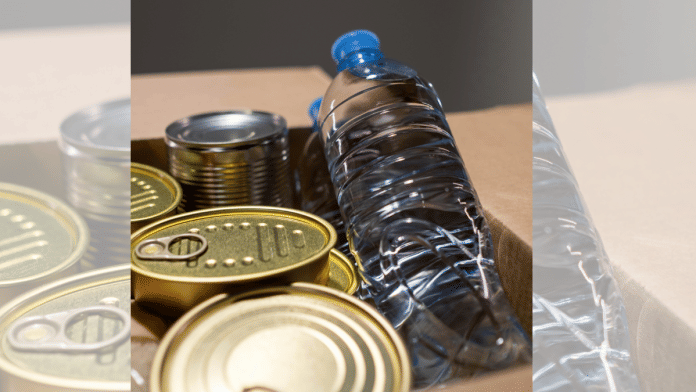New Delhi: India’s apex food regulator has now decided to treat all packaged drinking and mineral water in the ‘high risk’ category, mandating stricter regulatory controls and yearly inspections of their manufacturing facilities.
In an order issued 29 November, the Food Safety and Standards Authority of India (FSSAI) said that it was amending its risk-based inspection policy to include bottled drinking and mineral water in the high-risk food category.
This order paves the way for subjecting these products for mandatory risk inspections, surveillance and third-party audits for manufacturers. ThePrint has a copy of the order.
The decision follows the removal of mandatory Bureau of Indian Standards (BIS) certification for certain products, including packaged drinking water, in October. BIS is responsible for the development and maintenance of standards across a multitude of industries in India.
This BIS removal had created a potential regulatory gap, prompting the regulator to step in and enhance safety measures of the product, a senior FSSAI official explained.
The official added that the bottled water industry had also been demanding the streamlining of norms as till a month back, the manufacturers needed to comply with norms laid down by both FSSAI and BIS.
Before the latest amendment in its risk-based inspection policy, the FSSAI had classified 8 groups as high-risk foods which included dairy products, meat products and poultry, fish and fish products, eggs, prepared foods, all kinds of Indian sweets, nutrients and their preparations, and food items intended for special nutritional purposes.
The Indian bottled water market was valued around $3,790 million in 2023, and is estimated to reach $8,922 million by 2030, according to the Trade Promotion Council of India. It is estimated that nearly 80 percent of this industry is unorganised in the country.
Previous regulatory framework
Some food safety experts ThePrint spoke with underlined that while BIS certification is typically seen as a hallmark of compliance with the specified standards, designed to safeguard public health and promote safe consumption, the instances of contamination are commonplace.
The BIS had developed the Indian Standard (IS) 14543 for ensuring the safety and quality of packaged drinking water. This standard laid down the guidelines for various aspects of production, packaging and distribution of drinking water, making it essential for manufacturers to meet the prescribed quality parameters and protect public health.
On its part, the FSSAI also says that packaged drinking water should be clear without any sediments, suspended particles and extraneous matter, while microbiological requirements are also specified.
A food safety expert with Indian Council of Medical Research-National Institute of Nutrition (ICMR-NIN) said that while as of now the product specification for packaged water remains the same, the FSSAI step will primarily ensure better surveillance as the manufacturers will no longer need to have the ISI hallmark
“Whether the latest reclassification and risk-based inspections strengthen consumer protection and maintain rigorous quality control in the packaged water industry, we can say only in the coming times,” the food safety expert said.
(Edited by Tony Rai)
Also Read: Chhath devotees pray submerged in toxic Yamuna foam, anti-foam chemicals merely an eyewash






